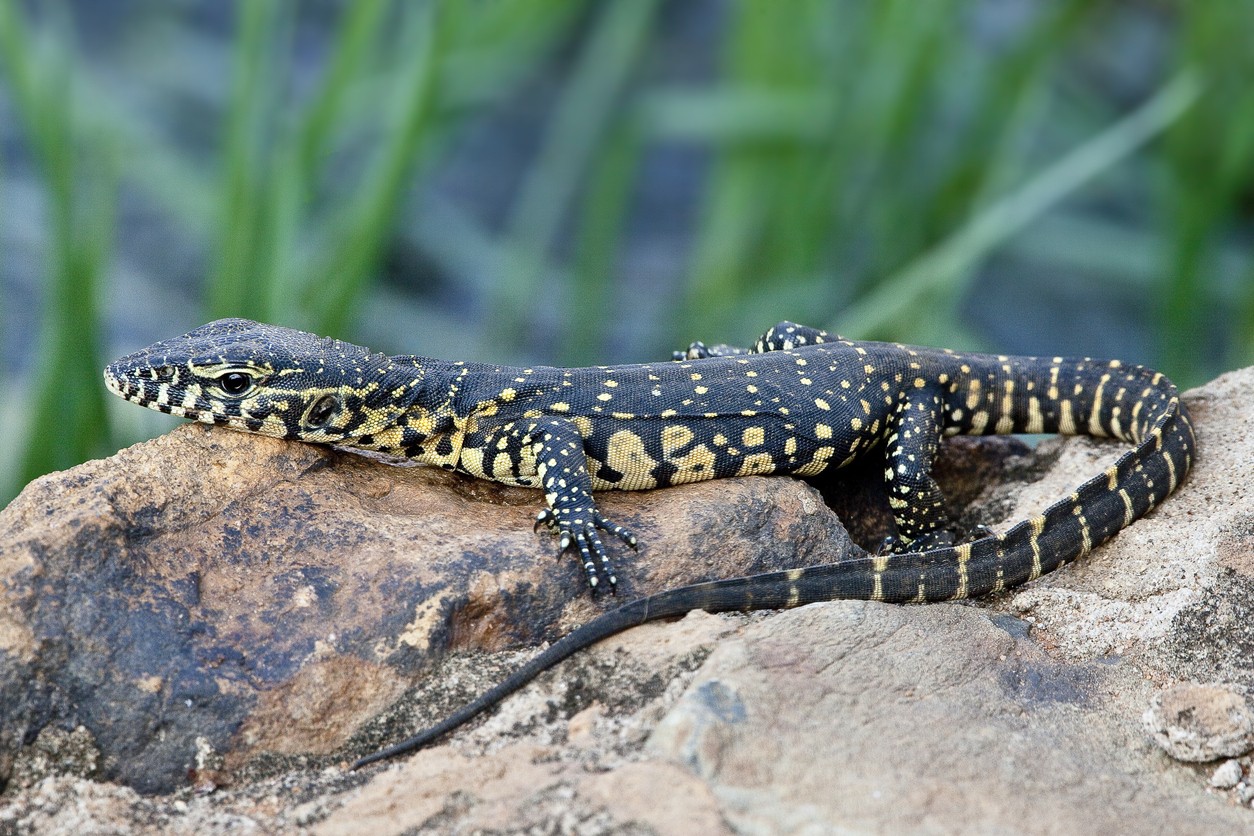As the clock ticks for Georgia pet owners who own reptiles newly regulated by the state, a sense of responsibility and commitment to preserving native wildlife is taking center stage. In a landmark move, the Georgia Department of Natural Resources (DNR) has implemented a set of regulations that requires pet owners to tag and register their reptiles, safeguarding the delicate balance of the state's ecosystem. This feature story explores the efforts of Georgia pet owners to comply with the new regulations and highlights the importance of protecting wildlife from non-native species.
A Race Against Time: Since December, six reptile species—Nile monitors, African helmeted turtles, Chinese softshell turtles, Argentine black and white tegus, and Indian rock and Burmese pythons—have been reclassified as wild animals in Georgia. For pet owners who have not yet tagged and registered these animals, the clock is ticking. December 3, 2023, marks the deadline for compliance, after which possession of these reptiles will be limited to scientific, educational, or public exhibition purposes. To facilitate this transition, a grace period was introduced, granting a 12-month window for pet owners to complete the tagging and registration process and for businesses to sell any wild animals acquired before the changes took effect.
Promoting Prompt Compliance: The Georgia Department of Natural Resources urges pet owners to prioritize the tagging and registration of their reptiles to ensure a smooth transition into the new regulations. The process involves tagging the animals with a passive integrated transponder (PIT) tag, a unique identifier that facilitates the registration process through DNR's Law Enforcement Division. Recognizing the importance of professional assistance, the department recommends consulting with veterinarians who possess the expertise to effectively add the PIT tag.
Dr. Brett Albanese, assistant chief with DNR's Wildlife Conservation Section, acknowledges the diligent efforts of pet owners who have already complied with the new rules, urging others to follow suit. By doing so, pet owners not only fulfill their legal obligations but also contribute to the preservation of native wildlife. Dr. Albanese further emphasizes the criticality of refraining from releasing non-native species into the wild, which not only endangers native wildlife but also necessitates additional regulations.
Navigating the Registration Process: To facilitate the transition, the Georgia Department of Natural Resources has streamlined the registration and tagging process. Pet owners can access the necessary information and frequently asked questions about reptile tagging and registration on the department's website: https://georgiawildlife.com/Reptile-Tagging-FAQ. In addition, the website provides comprehensive details regarding the recent changes to the wild-animal rules at https://georgiawildlife.com/wild-animal-rules.
A Harmonious Balance: The significance of complying with the new regulations extends beyond legal requirements. Allowing pet owners who possessed these reptiles prior to the new rules to tag and register them ensures these animals remain in their rightful homes while establishing a documented ownership record. Equally important, this approach discourages the release of non-native species into the wild, an illegal act that disrupts the delicate balance of Georgia's ecosystem. Georgia law draws a clear distinction between wild animals, native wildlife, and domestic species, enabling the state to regulate wild animals that pose threats to native wildlife, natural resources, public safety, and the enforcement of wildlife laws and regulations.
A Scientific Basis for Change: The recent changes to Georgia's wild animal list represent a significant step forward, supported by scientific research and ecological assessments. Biologists diligently reviewed documented non-native species in Georgia and neighboring states, as well as scientific publications evaluating the ecological risks and potential






























